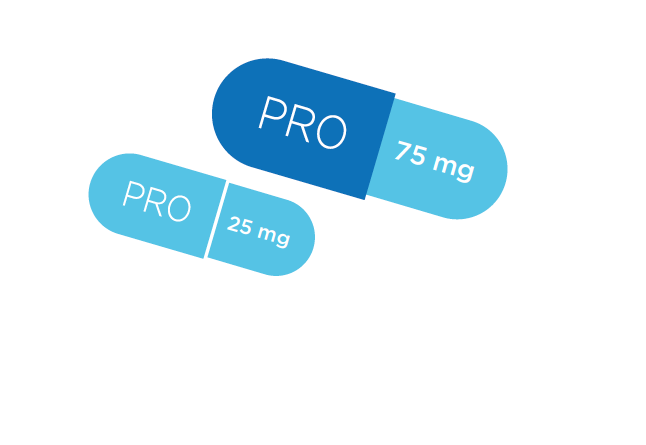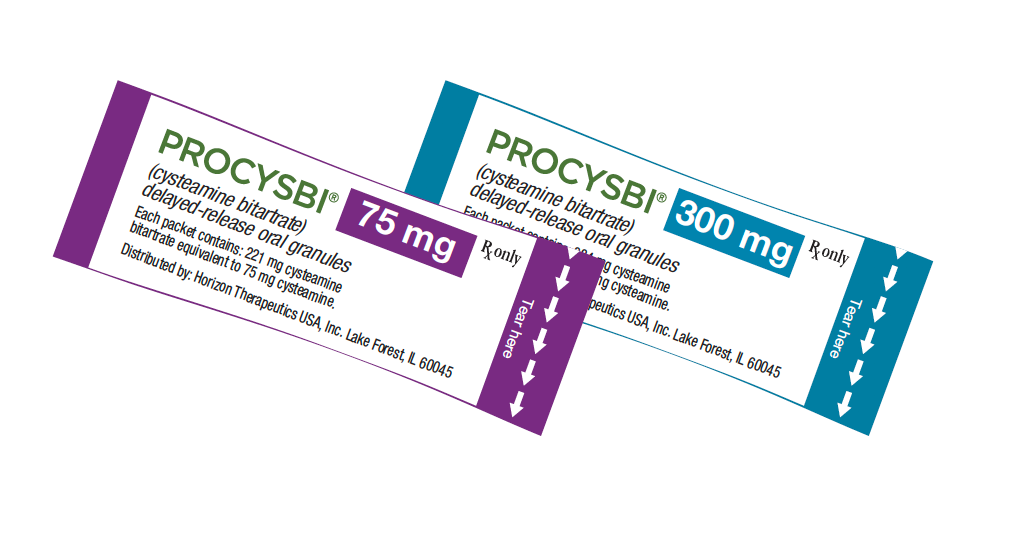By selecting the Yes option, leaving Amgen.eu option you understand that you are leaving the corporate page of Amgen Europe and that you will be redirected to another Internet site belonging to third parties, for whose content or opinions Amgen Europe is not responsible and makes no representations regarding such content or its accuracy. By selecting this option and accessing linked third party sites, you understand that you do so at your own risk.
The website to which you will be redirected may be designed exclusively for residents of a particular country or countries, as advertised on that website. As a consequence, the website to which you will be directed may contain information on pharmaceutical products or indications that are not approved in Europe. If You reside in a country other than the one to which such website is directed, please contact your local Amgen affiliate for the correct information on products in your country of residence.
PROCYSBI is available in capsules and in tear-open packets. Both options contain the same medicine.


PROCYSBI capsules and tear-open packets both contain the same PROCYSBI microbeads that are designed to provide 12 hours of continuous cystine control.
PROCYSBI is a prescription medicine used to treat nephropathic cystinosis in adults and children 1 year of age and older. It is not known if PROCYSBI is safe and effective in children under 1 year of age. Click here for Patient Package Insert.
No. PROCYSBI oral granules in packets is just a different dosage form in different packaging. The same granules, also called microbeads, inside PROCYSBI capsules are in the tear-open packets. Amgen maintains a rigorous testing and evaluation process to ensure consistency of the granules whether delivered in capsule or packet form..
If you and your cystinosis healthcare team decide that the oral granules in packets are right for you or your loved one, your healthcare team can guide you through the switch. If you have questions, you can reach out to your Patient Access Liaison at 1-855-888-4004.
PROCYSBI oral granules in packets are available in 75 mg and 300 mg strength options. The 25 mg and 75 mg PROCYSBI capsules will continue to be available. Both the capsules and the packets contain the same PROCYSBI granules, also called microbeads.
It is best to talk with your physician about how to make the appropriate adjustments for the strengths if needed.
Amgen remains committed to ensuring patients prescribed our medicines, including PROCYSBI oral granules in packets, have access. We have support and assistance in place so that eligible patients are able to receive our medicines regardless of their ability to pay. Find out more about support and assistance here.
Tell your doctor right away if you develop any of the following symptoms while taking PROCYSBI: headache, buzzing or "whooshing" sound in the ear, dizziness, nausea, double vision, blurry vision, loss of vision, pain behind the eye, or pain with eye movement.
PROCYSBI (cysteamine bitartrate) delayed-release capsules and delayed-release oral granules is a prescription medicine used to treat nephropathic cystinosis in adults and children 1 year of age and older. It is not known if PROCYSBI is safe and effective in children under 1 year of age.
Do not take PROCYSBI if you are allergic to penicillamine or cysteamine.
Before taking PROCYSBI, tell your doctor about all your medical conditions, including if you:
Tell your doctor about all the medicines you take, including prescription and over the counter medicines, vitamins, dietary and herbal supplements. Know the medicines you take. Keep a list of them to show your doctor and pharmacist when you get a new medicine.
PROCYSBI can cause serious side effects, including:
The most common side effects of PROCYSBI include: vomiting, nausea, stomach (abdominal) pain, pink eye, diarrhea, cold, tiredness, flu, headache, problems with body salts or electrolytes, infection of ear, nose or throat, joint pain.
These are not all the possible side effects of PROCYSBI. Call your doctor for medical information about side effects. You may report side effects to FDA at 1-800-FDA-1088.
For additional important safety information, click here for the Patient Package Insert and discuss with your doctor.